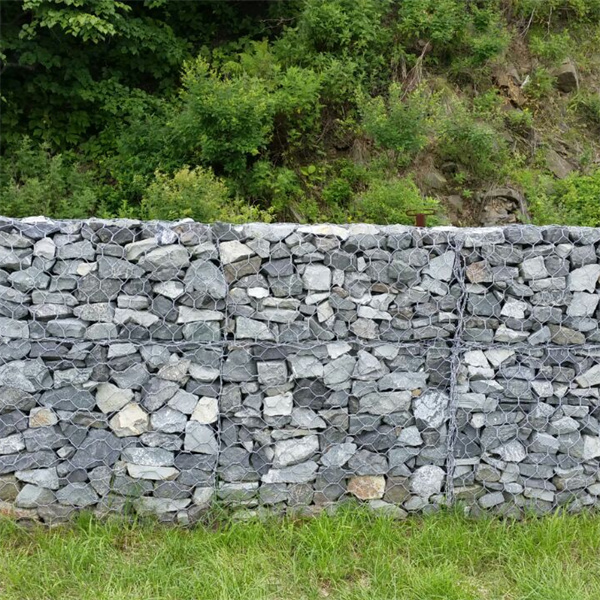12 月 . 13, 2024 11:17 Back to list
best gabion gravel
The Best Gabion Gravel A Comprehensive Guide
Gabion structures have gained immense popularity in modern landscaping, construction, and civil engineering. These sturdy, wire mesh cages filled with stones, rocks, or gravel are not only functional but can also enhance the aesthetic appeal of a space. One of the most critical components of a gabion wall or structure is the gravel used within it. In this article, we will explore the best types of gabion gravel, their applications, and considerations when selecting the right materials for your project.
Understanding Gabion Gravel
Gabion gravel is typically used in the construction of gabion baskets. These baskets are filled with various materials, but gravel is often preferred for its availability, cost-effectiveness, and versatility. The primary function of gravel in gabions is to provide stability and ensure proper drainage, which helps prevent erosion and water accumulation.
Characteristics of Ideal Gabion Gravel
When selecting gravel for gabions, several characteristics should be taken into consideration
1. Size The size of the gravel is paramount. Typically, gravel pieces should be between 1 to 3 inches in diameter. This size range ensures that the gravel can fill the basket effectively while allowing water to drain through easily.
2. Shape Angular gravel is ideal for gabion projects. Angular pieces interlock better than rounded gravel, providing increased stability and reducing movement within the gabion structure.
3. Material Natural stone gravel, such as granite or limestone, is often preferred for its durability and resistance to weathering. The choice of material can also impact the aesthetic qualities of the gabion structure.
4. Color The color of the gravel can significantly influence the overall appearance of the gabion. Depending on your project, you may wish to choose lighter or darker gravel to complement the surrounding environment or architectural features.
Types of Gabion Gravel
Several types of gravel can be used in gabion projects, each with its unique properties and benefits
best gabion gravel

1. Crushed Stone This type of gravel is made from quarried stone that is crushed to specific sizes. It is widely used due to its angular shape and varied colors. Crushed granite is particularly popular for its durability and appealing aesthetic.
2. River Rock Sourced from riverbeds, river rock is generally rounded and smooth, which gives it a unique look. While it may not interlock as well as angular gravel, it can create an attractive finish, especially in decorative applications.
3. Limestone Gravel Limestone is another excellent option for gabion gravel. Its angular shape provides good stability and drainage properties. Limestone gravel is often gray or light in color, which can blend seamlessly into many landscapes.
4. Recycled Concrete Increasingly popular in sustainable construction practices, recycled concrete gives a second life to waste materials. It can provide a rustic appearance and may include various color tones, adding character to a gabion structure.
Applications of Gabion Gravel
Gabion gravel is utilized in a variety of applications, including
1. Retaining Walls Gabion retaining walls help manage soil erosion and support earth structures in landscaping and construction projects.
2. Drainage Systems The drainage capabilities of gabion gravel help redirect water, preventing pooling and promoting healthy landscapes.
3. Landscaping Features Gabion baskets filled with decorative gravel can serve as attractive features in gardens, parks, and urban spaces.
4. Architectural Designs In modern architecture, gabion walls are often used as design elements, combining functionality with aesthetic appeal.
Conclusion
When it comes to choosing the best gabion gravel for your project, the decision should be based on the specific requirements of the application, aesthetic preferences, and budget considerations. By selecting high-quality gravel that complements the structural and visual aspects of your gabion project, you can create a durable and attractive solution that enhances the overall environment. Whether for practical applications like erosion control or decorative landscaping, the right gabion gravel can make all the difference. Always consult with professionals if you're unsure about the best materials for your needs, ensuring the success of your gabion structures while embracing creativity and functionality.
-
Wire Mesh Thickness Impact on Gabion Wall Load Bearing
NewsAug.12,2025
-
Ultimate Guide to Hexagonal Gabion Box
NewsAug.12,2025
-
Types of Rocks for Gabion Baskets Durability and Aesthetics
NewsAug.12,2025
-
Standard Gabion Box Sizes and Their Industrial Applications
NewsAug.12,2025
-
Easy Guide to Building Garden Gabion Cages at Home
NewsAug.12,2025
-
Drainage Solutions for Gabion Mesh Structures
NewsAug.12,2025
-
Visualizing Gabion 3D Integration in Urban Landscapes with Rendering
NewsJul.23,2025






